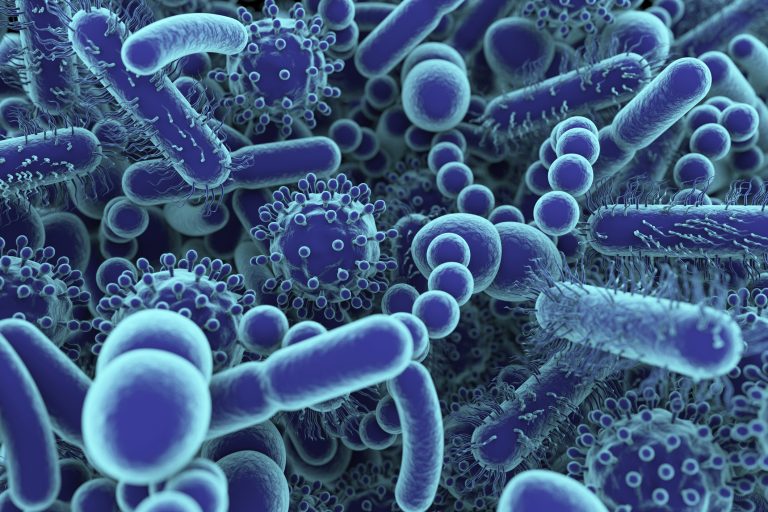
Fecal transplants from long-term survivors of pancreatic cancer patients to newly diagnosed ones may one day save lives. That’s according to a new study published in the 8 August 2019 issue of Cell that found that a key difference between the few pancreatic cancer patients who survive long-term and the many who succumb to their disease is the bacterial signatures on their tumors that either stimulate or suppress immune response.
The findings suggest using the microbiome—the composition of bacteria on the cancer—as a prognostic tool. They also suggest altering a patients’ tumor microbiome might be an effective treatment. “You cannot modulate the tumor microbiome directly, but you can modulate the gut microbiome, and if there’s cross-talk between the gut and the tumor microbiomes, you could change the tumor microbiome indirectly,” said senior author Florencia McAllister, M.D., assistant professor of Clinical Cancer Prevention at The University of Texas MD Anderson Cancer Center in a press release.
To test this possible therapy, McAllister and her team performed fecal microbiota transplants (FMT) in a mouse model. They found that FMT from long-term survivors prompted immune response and stifled tumors in the mice by altering the bacteria on the tumor. “Results of the FMT experiments represent a significant therapeutic opportunity to improve pancreatic cancer treatment by altering the tumor immune microenvironment,” McAllister said. “There is promise here but we have a lot of work ahead.”
More than 56,000 people in the U.S. are diagnosed with pancreatic cancer every year, according to the National Institutes of Health. The disease disproportionately affects minorities, who are more likely to get it and more likely to die from it. Most patients with the common form of the disease are diagnosed with late-stage cancer. Just 9 percent survive to five years – and researchers don’t know why.
What they do know, thanks to recent studies, is that the composition and diversity of microbes living in the digestive tract – the gut microbiome – can affect how cancer immunotherapy works. “We’ve known there are bacteria on pancreatic tumors, so we asked ‘do these bacteria have a role in cancer?’”
In the current study, McAllister and her colleagues analyzed the bacterial DNA in tumors of long-term survivors matched to short-term survivors from two independent cohorts at MD Anderson and Johns Hopkins Hospital. In the MD Anderson cohort, median survival was 10 years for the long-term survivors (22 patients) and 1.6 years for the short-term survivors (21 patients). In the validation cohort from Johns Hopkins, 15 patients had overall survival greater than 10 years, and 10 survived fewer than five years.
Using 16S rRNA gene sequencing, the team found the long-term survivors had much greater diversity of bacterial species than the short-term survivors. Stratifying the
MD Anderson patients only by this diversity measure showed those with high diversity had median survival of 9.7 years and those with low diversity had median survival of 1.7 years. This indicates the possible prognostic value of tumor microbiome diversity measures.
McAllister and colleagues also worked to discover how the microbiome may be helping long-term survivors. They found a greater density of cell-killing T-cells associated with tumor microbiome diversity. They also found a strong correlation between immune cell infiltration and the microbiome diversity of the tumors.
Next, the team set out to find a way to change the tumor microbiome. Researchers analyzed bacteria in the gut, in the tumor and in adjacent tissue in three surgery patients. They found the gut microbiome represents about 25 percent of the tumor microbiome, but is absent from the normal, adjacent tissue, suggesting bacteria in the gut can colonize pancreatic tumors.
The researchers transplanted fecal microbiota from patients with advanced cancer into mice and found that the donor microbiome represented about 5 percent of the resultant tumor microbiome but that 70 percent of the overall tumor microbiome had been otherwise altered by the transplant.
“Now we know you can completely change the bacterial composition of the tumor microbiome by doing FMT,” McAllister said.
The study’s authors called FMT “an immense therapeutic opportunity” that might one day be use to change the microbiome and improve the life expectancy of pancreatic cancer patients.















